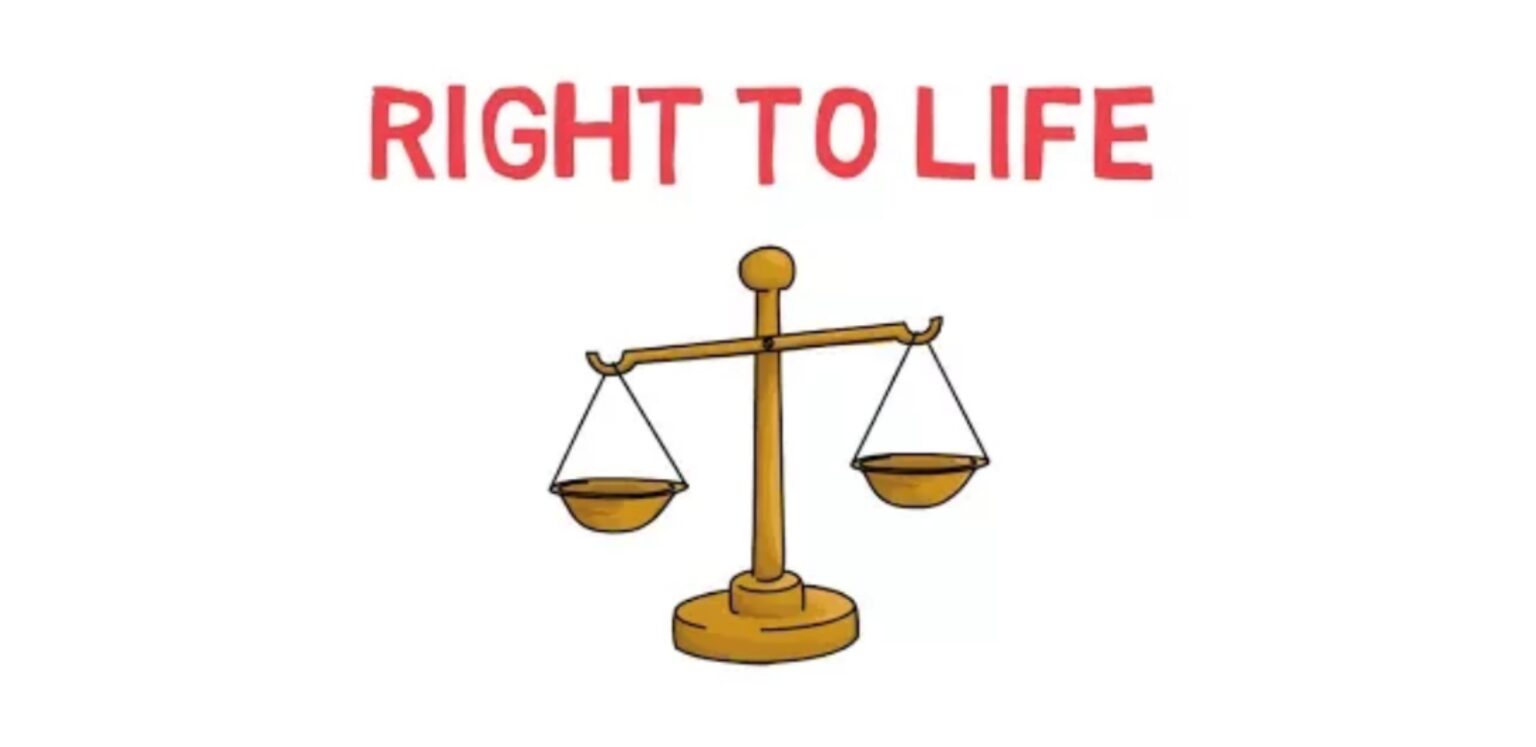PART III of the Constitution of India deals with FUNDAMENTAL RIGHTS. Though there are a handful of them, Right to Life is considered to be the most important of them all. Article 21 deals with Protection of life and personal liberty.
The bare text of article 21 reads as, No person shall be deprived of his life or personal liberty except according to procedure established by law.
However a convict who has been given a valid death sentence by a court of competent jurisdiction cannot be exempted from the penalty merely because he has the fundamental right to life. That is why the Article has expressly mentioned the words, “except according to procedure established by law.”
Facets:
• The two facets of article 21 are right to life and personal liberty.
• The Supreme Court has from time to time interpreted these two terms and has included several other rights that fall under the broad category of right to life and personal liberty.
Interpretations: (Case Laws)
Following are few of the landmark interpretations by the hon’ble Supreme court:
1. In the case of Subhash Kumar v. The State of Bihar, the Court observed that the right to life guaranteed by Article 21 includes The right to a healthy environment, the right to the enjoyment of pollution-free water and air for a healthy life. (1)
2. In the case of Milk Men Colony Vikas Samiti v. State Of Rajasthan, the Supreme Court held that the right to life means a clean environment which will be responsible for a healthy body and mind. (2)
3. In the case of Bandhua Mukti Morcha vs. UOI,, the Supreme court has held that the right to life should be taken to mean the right to live with dignity free from exploitation. (3)
4. In Maneka Gandhi v. Union of India, The Court held that the right to live is not merely a physical right but includes within its ambit the right to live with human dignity. (3)
5. In Bodhisattwa Gautam vs. Subhra Chakroborty, the court stated that Rape is the most hated crime. It is a crime against basic human rights and is also violative of the victim’s most cherished of the Fundamental Rights, namely, the Right to Life contained in Article 21. (5)
6. in R.Rajgopal vs. State of Tamil Nadu, the court observed the meaning of right to privacy and said that it is the right to be left alone and is guaranteed under Article 21 of the constitution. (6)
7. In the case of Hussainara Khatoon vs. Home Secretary, State of Bihar, the Supreme Court held that speedy trial is a fundamental right and is and is constructive under Article 21 of the Constitution and such right is enforceable in court. (7)
8. In the case of STATE OF MAHARASHTRA v. PRABHAKAR PANDURANG, the Court held that there were no rules prohibiting a detenu from sending a book outside the jail with a view to get it published. The Bombay district prison infringed the personal liberty by refusing to send the manuscript book of the detenu out of the jail to his wife for eventual publication. (8)
9. In the case of Bachan Singh vs. State of Punjab, the SC upheld the constitutionality of section 302 of IPC and held That death penalty under section 302 of IPC shall be given only in the rarest of rare cases when the alternative option is unquestionably foreclosed. (9)
10. In Gian Kaur vs. State of Punjab, the Supreme Court stated that ‘Right to life’ is a natural right embodied in Article 21 but suicide is an unnatural termination or extinction of life and, therefore, incompatible and inconsistent with the concept of right to life’. (10)
References:
1. Subhash Kumar v. The State of Bihar, AIR 1991 SC 420.
2. Milk Men Colony Vikas Samiti v. State Of Rajasthan, (2007) 2 SCC 413.
3. Bandhua Mukti Morcha vs. Union of India, AIR 1984 SC 802.
4. Maneka Gandhi v. Union of India, 1978 AIR 597.
5. Bodhisattwa Gautam vs. Subhra Chakroborty, 1996 AIR 922.
6. R.Rajgopal vs. State of Tamil Nadu, (1994) 6 SCC 632.
7. Hussainara Khatoon vs. Home Secretary, state of Bihar AIR 1979 SC 1360.
8. STATE OF MAHARASHTRA v. PRABHAKAR PANDURANG 1966 AIR 424.
9. Bachan Singh vs. State of Punjab, AIR 1980 SC 898.
10. Gian Kaur vs. State of Punjab 3 AIR 1996 SC 1844
Authors:
1. Ms. S. R. Ranjitha, B.A., B.L., Advocate practicing at Madras High Court, with 5 years of experience in Family and Property matters.
2. Sarfaras Feroz, 4th Year student of BBA, LLB (Hons) at Saveetha School of Law, SIMATS, Chennai.


